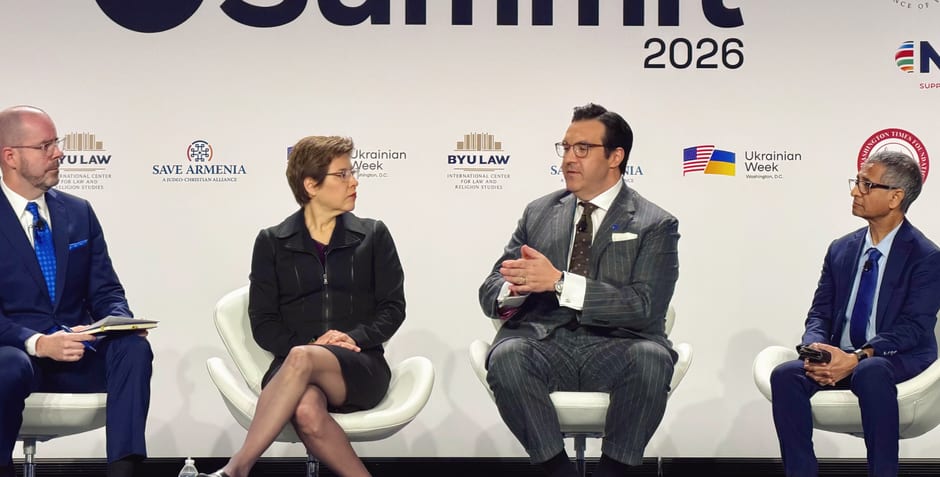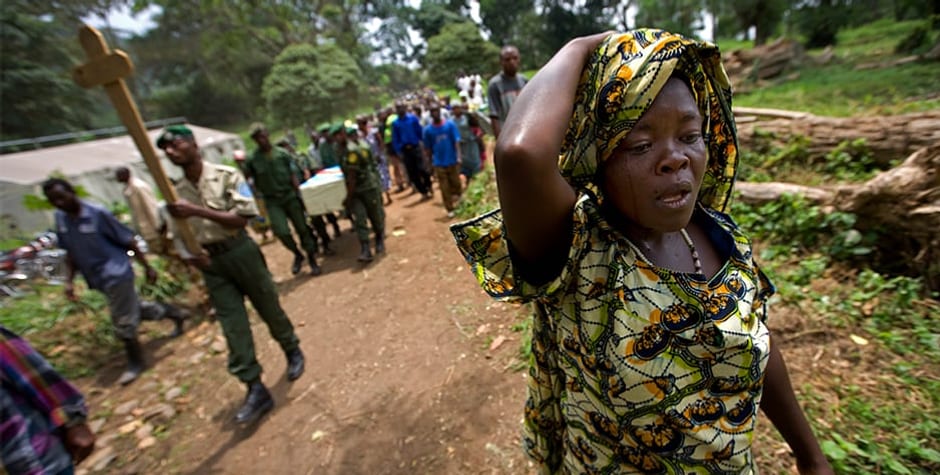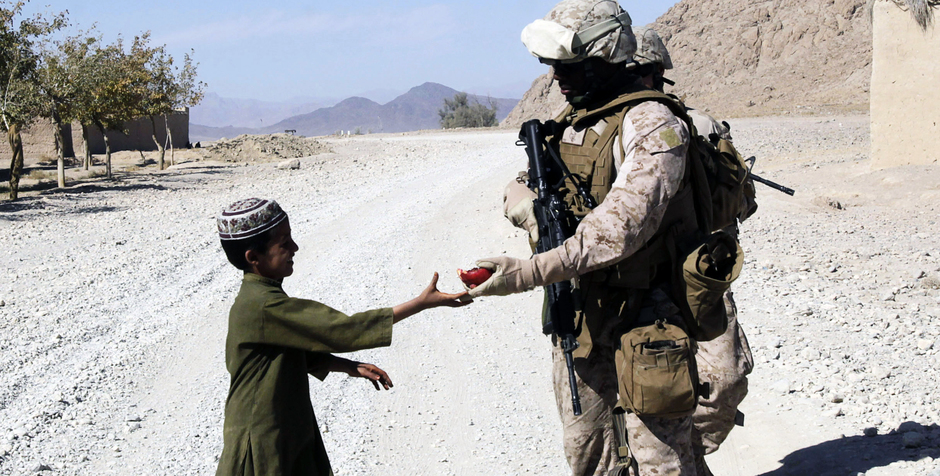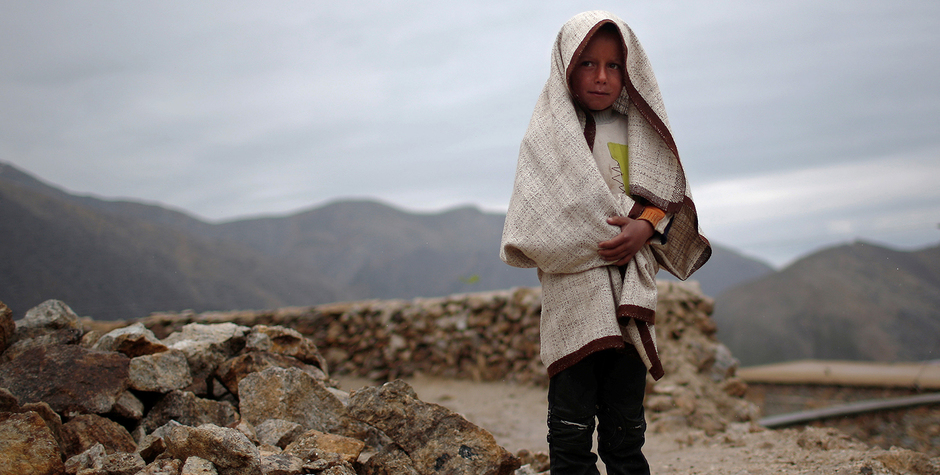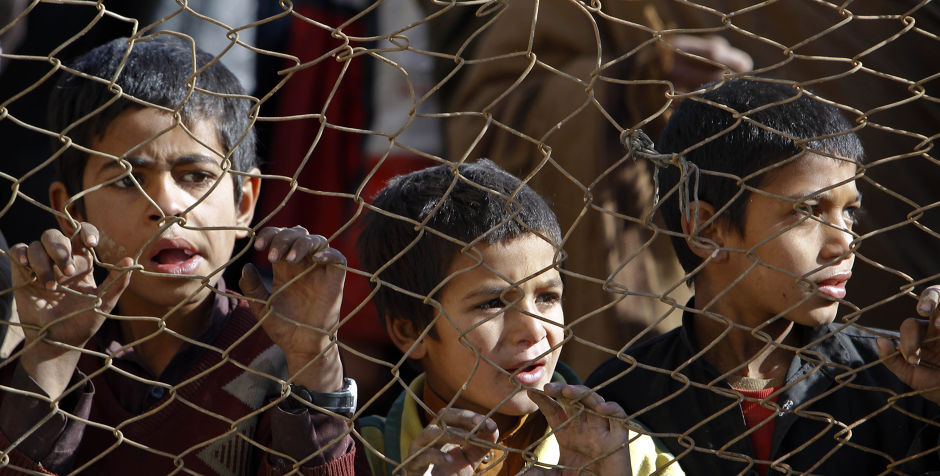Search
|
Login
|
Register
Be
Heard
Project
Donate
>
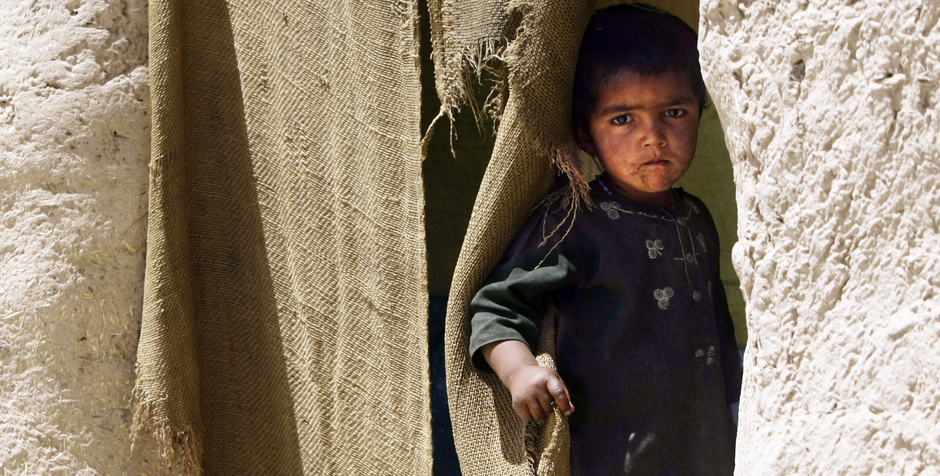
Status:
Ongoing
Be Heard
Sign the petition
Sign
>
Receive the latest news, updates, and contribution opportunities from Be Heard Project
In the News
FEB // 2026
The MARTLAND Act: Combating Systemic Child Sexual Torture on Our...
ACLJ Staff Writers //
Jul 11, 2016
It’s Time the U.S. Military Step Up the Fight Against Child Sexual...
ACLJ Staff Writers //
Jun 21, 2016
Fighting the Sexual Abuse of Young Afghani Boys at the United Nations
ACLJ Staff Writers //
Feb 16, 2016
Story
Bacha bazi means "boy play" and is an ancient, traditional custom of the Pashtun culture, which is prominent in Afghanistan and in some parts of Pakistan. Thirteen million men from the Pashtun tribe make up approximately fifty percent of the population of Afghanistan, and approximately forty percent of those males engage in the practice of bacha bazi. According to a study by Hagar International, an international NGO actively helping survivors of trafficking in Afghanistan recover and reintegrate into society, one of ten Afghan boys has been the victim of human trafficking.
The custom is that a man, usually either a warlord, former military commander, or business man becomes a "bacha baz" by acquiring a "bacha bereesh," a beardless boy who is usually between the ages of fourteen and eighteen (or by some reports, as young as nine) to be used as a dancing boy and sexual partner. The amount of wealth required to maintain a boy in the bacha bazi lifestyle is not very high; according to reports, sixty-four percent of bacha bazi are ordinary or average men, without extraordinary amounts of wealth. The boy (known as a bacha) is either tricked or lured into the arrangement with gifts, or he is bought from a poor family who needs the money of a wealthy man to survive. Sometimes, a family with many sons will provide one of the boys to a warlord or businessman in order for the boy to have the opportunity to gain the favor of the influential man who can possibly place him in a stable job once he is an adult.
Even if a man is not wealthy enough to actually own a bacha, modern technology has made it possible for them to participate in the practice by buying DVDs of bacha bazi dancing performances, which are widely available in the major cities of Afghanistan.
There are several variations of the bacha bazi tradition. In some areas of Afghanistan, the bachas are kept solely for sexual purposes and there is no dancing involved. In other regions, the bacha's dancing is used as a way to increase the bacha baz's status and no sexual abuse occurs. In these areas, bachas who are talented dancers or singers are highly valued and are pursued by a number of different men. However, in most cases, sexual abuse is the primary motive for the bacha baz's participation in the tradition, and most situations include some form of sexual exploitation.
Once a bacha is acquired, he becomes a status symbol and the property of the bacha baz who keeps him. He will accompany his "master" around town, give him private dances and sexual favors, and can be hired out to participate in events such as parties or weddings, where his performance is watched by many men, and brings his "master" status. When a bacha is not accompanying his bacha baz, he might work in the bacha baz's business or home as an attendant, servant, or waiter.
For the bachas who dance, performances last for hours on end and they begin when they are brought to tea rooms, restaurants, and wedding halls where the bachas are beautified by putting on wigs, curling and styling their hair, having makeup applied, and painting their fingernails and toenails bright colors. The bachas are dressed in women's clothing with bells on their feet and scarves around their faces. The boys are taught to dance seductively and use feminine gestures to attempt to entrance the men watching them during the event. After several hours of dancing, the boys are sometimes bought and sold amongst the men and often used sexually, occasionally by the entire group of men. If a boy is not willing to dance and participate in the activities of the night, he is beaten with a cane. If a boy pleases a man, he is called his "ashna" or beloved and he might have a less traumatic experience. However, less fortunate boys might suffer any number of injuries including, "internal/anal hemorrhaging, rectal prolapse, protrusion of intestines, displaced pelvis bones, throat injuries, heavy internal bleeding, rectal wall tearing," and non-sexual related physical injuries such as "broken limbs, broken fingers, fractures, broken teeth, savage beatings, strangulation, asphyxiation, and in some cases, death."
Once a boy reaches 18, when he must shave and is no longer beardless, he is usually traded in for a younger boy. The boy, depending on the circumstances, might marry his bacha baz's daughter and be brought into the family business, thereby reclaiming his manhood. Or he might end up discarded and be forced to support himself through prostitution.
The history of bacha bazi in Afghanistan stretches back to the 1800s and reflects the practices of two of Afghanistan's conquering powers, Russia and Turkey. The Emir of Bokhara, a descendant of Genghis Khan, was known for building a house with two wings; he filled one with one-hundred young women and he filled the other wing, where he resided, with young boys. He brought his dancing boys to Afghanistan while fleeing the Bolsheviks, and scattered them along his route, introducing the boys throughout Afghanistan. In Turkey, the custom of boys dancing in feminine clothing was outlawed in 1857, and many of the dancers fled to surrounding countries, which also likely played a role in the acceptance of the tradition in Afghanistan.
This practice is so ingrained in the Pashtun culture because of how they view sexuality: "women are for children; boys are for pleasure" is a common saying. Women's bodies are seen as unclean due to the menstrual cycle and marriage is viewed more as a cultural duty to produce heirs, rather than a relationship between a husband and a wife. Bacha bazi is seen simply as an avenue to pleasure. One warlord told an Afghan reporter, "Some men enjoy playing with dogs, some with women. I enjoy playing with boys." Also, the exposure to such abuse during formative years creates a vicious cycle in which those who were abused continue to be attracted to young boys as they mature, thus reinforcing the tradition through upcoming generations.
The effects of bacha bazi on the victim go beyond the expected effects of rape trauma (both emotional and physical), social isolation, and a widespread channeling of sexual energy and attraction toward same-sex relationships. Bacha bazi has political and international ramifications because of who participates in the practice. The Pashtun warlords, who are the main opponents of the Taliban in Afghanistan, are the primary perpetrators of this atrocity. This makes the general population more likely to sympathize with the Taliban, because the Taliban is less likely to take their teenage boys and abuse them sexually. Because the international community is trying to support the Pashtun's efforts and not alienate them, they are either overlooking the plight of the boys who are being used in this way, or are unaware. Reportedly, the United States in particular has a policy of non-intervention when it comes to bacha bazi.
Disturbingly, new reports reveal that the Taliban is now using boys enslaved and tortured in bacha bazi for insider attacks against Afghan police and military officials. Over the past two years, these boys are used to infiltrate check points and kill, drug, and poison police officers, with at least six attacks in early 2016 killing hundreds.
Although the government of Afghanistan officially condemns bacha bazi and international efforts are continually made to eradicate it, the practice continues to thrive.
The United Nations (UN) has addressed the issue by overseeing Afghanistan's treaties, including Convention on the Rights of the Child and Protocol to the Convention on the Rights of the Child on the Sale of Children, Child Prostitution and Child Pornography. The UN also published a comprehensive manual designed to help the Afghanistan government "implement a legal framework for banning child sex trafficking."
Additionally, human rights organizations have made efforts to stem the tide of this form of human trafficking. The Afghanistan Independent Human Rights Commission (AIHRC) has pushed for amendments to the country's criminal laws that would explicitly prevent bacha bazi, since current laws proscribing rape and pederasty do not cover the practice. Nevertheless, no amendments have been added to the nation's laws.
A program titled, "Forgotten No More" was launched under the auspices of the AIHRC, the Child Protection Action Network, and the ministries of Labour and Social Affairs, Interior, and Justice. The initiative, which has rescued forty-seven boys so far, provides victims with access to medical care, counseling, and legal aid. Hagar International provides reintegration services to boys who have been brought out of the lifestyle. Furthermore, a documentary by PBS Frontline featuring journalist Najibullah Quraishi further exposed the practice in 2010. Nevertheless, the issue is often downplayed or ignored—especially by the legal community. Furthermore, American soldiers have been told to ignore the abuse.
Not only have soldiers been told not to intervene, but those that do "face discipline, even career ruin, for disobeying." The instruction to American soldiers not to intervene and prevent the abuse of Afghan boys is currently under review by the Special Inspector General for Afghanistan Reconstruction ("SIGAR"). In its quarterly report to the United State Congress, SIGAR noted that it has been requested by "[a] bipartisan, bicameral group [of 93] Members of Congress . . . to conduct an inquiry into the U.S. government's experience with allegations of sexual abuse of children committed by members of the Afghan security forces." This inquiry is a result of "articles in the New York Times that sexual abuse of children by members of Afghan military and police forces has been rampant and that U.S. soldiers and Marines had been instructed not to intervene."
The U.S. gives Afghanistan more foreign aid than any other nation, yet we are silent in the face of child rape and torture. It's abominable.
This is why we're fighting back, aggressively advocating on Capitol Hill, demanding the Obama Administration address these atrocities. We're submitting critical legal documents and testimony at the United Nations to end the abuse. Join the fight today. Shine a light into the darkness.
You can help save Children Facing Sexual Torture
Sign the Petition
^
Be heard when you share.
American Center for Law and Justice | Washington D.C. | Copyright © 2026, ACLJ | Privacy & Security Policy | Annual Report
Be Heard Project is a project of the American Center for Law and Justice. American Center for Law and Justice is a d/b/a for Christian Advocates Serving Evangelism, Inc., a tax-exempt, not-for-profit, religious corporation as defined under Section 501(c)(3) of the Internal Revenue Code, specifically dedicated to the ideal that religious freedom and freedom of speech are inalienable, God-given rights. The Center's purpose is to engage legal, legislative and cultural issues by implementing an effective strategy of advocacy, education and litigation to ensure that those rights are protected under the law. The organization has participated in numerous cases before the Supreme Court, Federal Court of Appeals, Federal District Courts, and various state courts regarding freedom of religion and freedom of speech. Your gift is very much appreciated and fully deductible as a charitable contribution. A copy of our latest financial report may be obtained by writing to us at P.O. Box 90555, Washington, DC 20090-0555.
